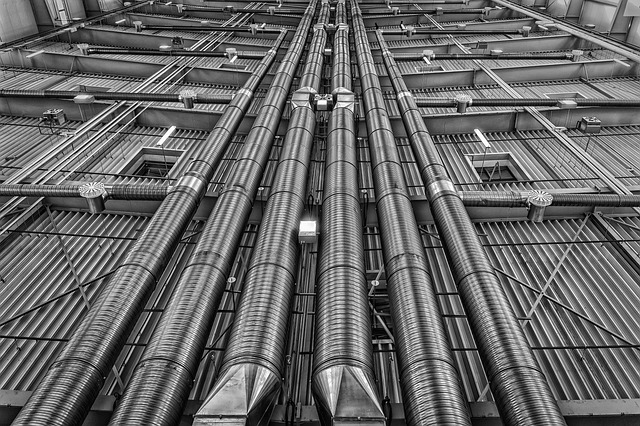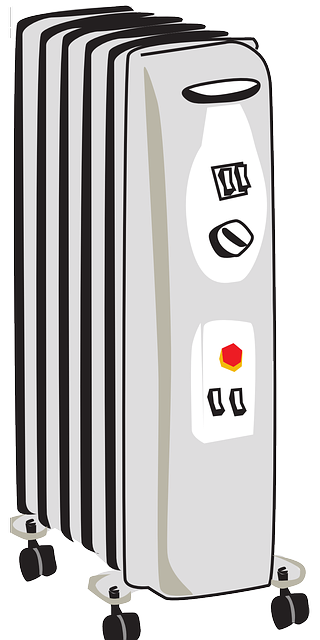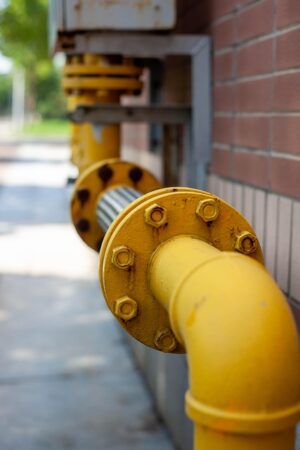Smart industrial unit heaters are revolutionizing commercial heating in manufacturing facilities and warehouses, offering advanced control, energy efficiency, and seamless integration with building automation systems. Available in gas-fired, electric, and suspended models, these heaters feature high BTU ratings, forced air heating for even distribution, and remote monitoring capabilities. By prioritizing comfort and cost savings, they ensure optimal working conditions while promoting sustainability. Integrating these heaters with automation systems provides precise temperature control, energy optimization, and uniform heat distribution, making them ideal for heavy-duty construction and manufacturing facilities. Future developments promise even higher energy performance and enhanced worker comfort through advanced gas and electric unit heaters, forced air technology, and centralized monitoring.
Smart industrial unit heaters are transforming heating solutions, integrating seamlessly with building automation systems (BAS). These advanced heaters offer precise temperature control, energy efficiency, and remote monitoring, enhancing indoor comfort and reducing operational costs. This article delves into the understanding of smart industrial unit heaters, explores the myriad benefits of their integration with BAS, and discusses implementation strategies along with future prospects in this evolving landscape. Discover how these innovations are revolutionizing heating management for various industries.
- Understanding Smart Industrial Unit Heaters
- Benefits of Integrating with Building Automation Systems
- Implementation and Future Prospects
Understanding Smart Industrial Unit Heaters

Smart industrial unit heaters are designed to revolutionize commercial heating in manufacturing facilities and warehouses, offering advanced control and energy efficiency. These heaters integrate seamlessly with building automation systems, allowing precise temperature regulation across large, heavy-duty spaces. By leveraging technology, they provide both comfort and cost savings, ensuring optimal working conditions without excessive energy consumption.
Available in various types such as gas fired heaters, electric unit heaters, and suspended heaters, these smart solutions boast high BTU ratings to handle demanding industrial applications. With forced air heating capabilities, they distribute heat evenly, making them ideal for spacious warehouses and manufacturing facilities. This technology not only enhances comfort but also contributes to a more sustainable and environmentally friendly operational environment.
Benefits of Integrating with Building Automation Systems

Integrating smart industrial unit heaters with building automation systems offers a multitude of benefits for businesses operating in heavy-duty construction and industrial applications. This advanced technology allows for precise control over warehouse heating, manufacturing facilities’ temperature regulation, and even customisation of BTU ratings to specific zones, optimising energy efficiency. With forced air heating mechanisms, these smart heaters can efficiently distribute heat throughout vast spaces, ensuring every corner remains at the desired comfort level.
Moreover, the seamless integration with automation systems enables remote monitoring and control, making it easy for facility managers to adjust settings from anywhere. This not only enhances convenience but also improves safety by allowing quick responses to temperature fluctuations or potential issues. Electric unit heaters and gas-fired heaters can benefit from this integration, ensuring optimal performance and reducing operational costs in commercial heating applications.
Implementation and Future Prospects

The implementation of smart industrial unit heaters integrated with building automation systems marks a significant step forward in optimizing commercial heating for various industrial applications, including warehousing and manufacturing facilities. These advanced heaters leverage technology to enhance energy efficiency, offering precise temperature control tailored to specific zones within heavy-duty construction sites. By seamlessly integrating with existing automation infrastructure, they enable centralized monitoring and adjustments, thereby reducing operational costs and enhancing comfort in large, bustling warehouse environments or crowded manufacturing floors.
Looking ahead, the future of smart industrial heating systems promises even greater prospects. Innovations in gas fired heaters and electric unit heaters, coupled with advancements in forced air heating technology, are set to elevate energy performance to new heights. Higher BTU ratings will cater to the demanding heat requirements of heavy-duty operations, ensuring efficient and reliable warmth throughout vast industrial spaces. This evolution not only promises enhanced comfort for workers but also contributes to sustainable practices by optimizing energy use in these resource-intensive environments, making them a game-changer in the realm of commercial heating.
Smart industrial unit heaters that seamlessly integrate with building automation systems offer a future where energy efficiency, comfort, and control are unparalleled. By leveraging advanced technology, these heaters not only optimize heating processes but also contribute to significant cost savings and reduced environmental impact. As the demand for sustainable solutions continues to grow, the integration of smart industrial unit heaters into building automation systems is poised to become a game-changer in the industry.











